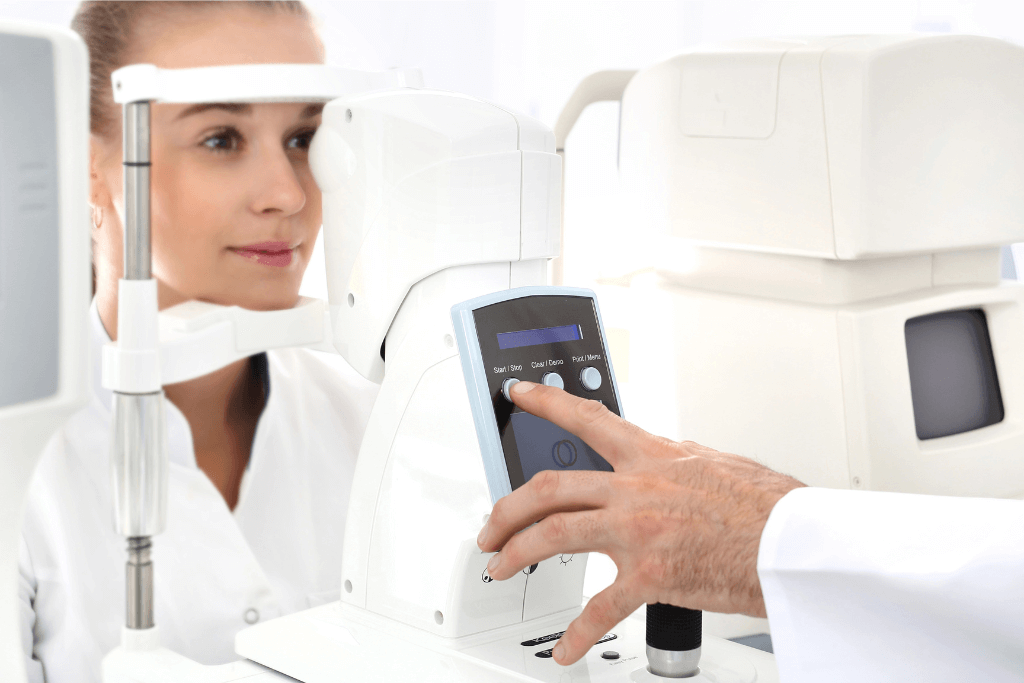When faced with a cataract diagnosis, the path to restored vision begins with a critical decision: choosing the right cataract surgeon in Los Angeles has to offer. This choice is more than just selecting a name from a list; it is about how to find the best cataract surgeon in Los Angeles. The quality of your outcome, from surgical precision to long-term visual clarity, depends heavily on the surgeon and their team. Making the wrong choice can lead to unwanted complications, a lengthier recovery, and dissatisfaction with your new vision.
To help you navigate this important process and find the best cataract surgery in LA has to offer, we’ve outlined five common mistakes people make and how to avoid them. By searching for what to look for in a cataract surgeon, you can confidently choose an eye doctor who will provide a safe, effective, and personalized cataract treatment experience.
Mistake #1: Not Researching a Surgeon’s Qualifications and Experience
This is one of the most common mistakes when choosing a cataract surgeon. Many people assume all surgeons are equally qualified, but this is a dangerous misconception. When looking for the best cataract doctor in LA has to offer, you must prioritize their credentials and experience.
First and foremost, look for a board-certified ophthalmologist. Board certification from the American Board of Ophthalmology is the gold standard, demonstrating that a surgeon has undergone rigorous training, passed intensive exams, and is committed to maintaining the highest level of expertise through continuing education. This certification is a strong indicator of their dedication and skill.
Beyond certification, consider their specialization. A surgeon who specializes in eye surgery in Los Angeles with a focus on cataract procedures will have a deeper understanding of the nuances of the operation and be better equipped to handle any complexities that may arise. Furthermore, ask about their experience with advanced surgical techniques, such as laser-assisted cataract surgery. Modern technology has revolutionized the field, and a surgeon with expertise in these methods can often provide more precise and predictable results.
Also Read: Do You Really Need Cataract Surgery in Both Eyes? Here’s How It Works
Mistake #2: Failing to Check Patient Reviews and Testimonials
While a surgeon’s credentials are a great starting point, patient feedback provides invaluable insight into their real-world performance. You should always take the time to read online reviews, testimonials, and patient success stories. These accounts can reveal a lot about a surgeon’s reputation, not just for their surgical skills but also for their bedside manner, communication style, and the overall patient experience.
When reviewing feedback, look for recurring themes. Consistent positive comments about a surgeon’s ability to explain the procedure clearly, their compassionate approach, and the professionalism of their staff are all excellent signs. Conversely, repeated negative comments about long wait times, poor communication, or a rushed consultation should raise red flags.
In addition to online research, don’t underestimate the power of personal referrals. Asking friends, family, or your primary care doctor for recommendations can lead you to a trusted surgeon they’ve had a positive experience with. Hearing a firsthand account from someone you trust can provide a level of reassurance that no online review can match.
Mistake #3: Ignoring the Surgeon’s Approach to Personalized Care
Cataract treatment is not a one-size-fits-all procedure. Your eyes are unique, and your surgical plan should be tailored to your specific needs, lifestyle, and visual goals. A significant mistake is choosing a surgeon who offers a generic approach without a thorough discussion of your case.
A great surgeon will take the time to understand your vision, your daily activities, and your post-surgical goals. They will explain all of your available options, including the different types of premium intraocular lenses (IOLs) that can correct not only your cataract but also other conditions like astigmatism or presbyopia. They will discuss the potential benefits and risks of each option, empowering you to make an informed decision.
Effective communication is key. You should feel completely comfortable with your surgeon, able to ask questions and voice any concerns without feeling rushed. A doctor who listens attentively and provides clear, comprehensive answers is an important partner in your journey to better vision.



